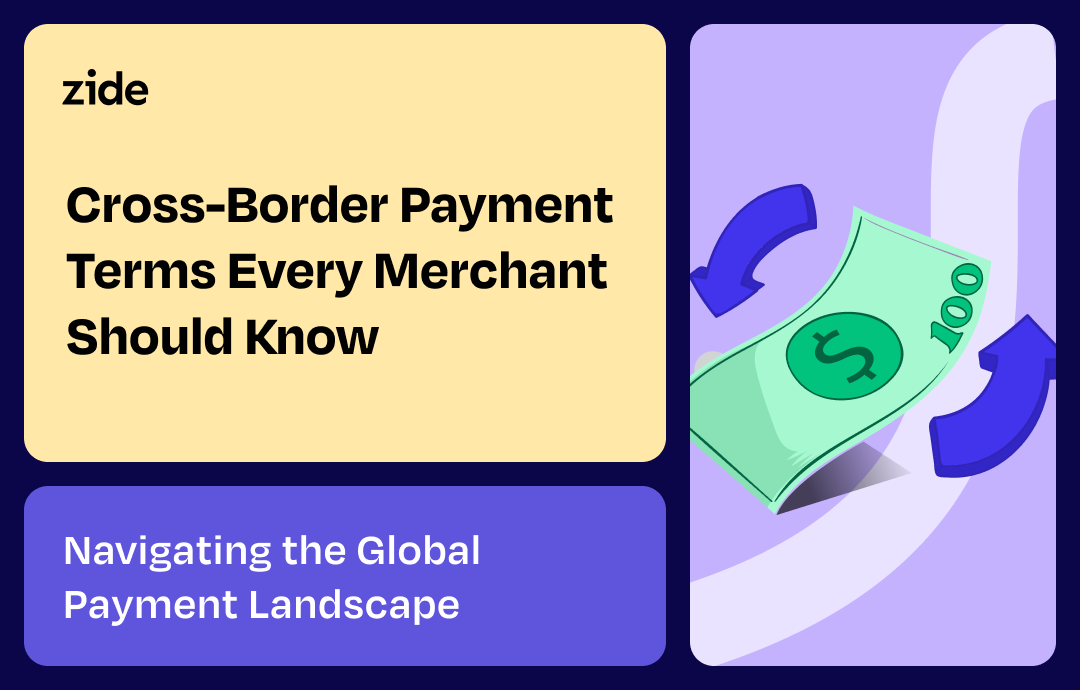Blog
Cross-Border Payment Terms Every Merchant Should Know
2 minutes
Cross-Border Payment Terms Every Merchant Should Know
Navigating the Global Payment Landscape


Taqwa Ghazal
Dec 5, 2023 4:08 PMIn the rapidly evolving world of global commerce, understanding key cross-border payment terms is essential for any merchant looking to expand their business internationally. This comprehensive article covers crucial terms and concepts in the cross-border payment sector, providing merchants with the knowledge needed to navigate these complex processes effectively.
Essential Cross-Border Payment Terms
- SWIFT Code: A standard format for Business Identifier Codes (BIC), used to identify banks and financial institutions globally during international transactions.
- IBAN (International Bank Account Number): A unique identifier for bank accounts that facilitates international payments, especially in Europe.
- FX (Foreign Exchange) Rate: The rate at which one currency can be exchanged for another, crucial in cross-border transactions.
- AML (Anti-Money Laundering): Regulations and procedures designed to prevent the practice of generating income through illegal actions.
- KYC (Know Your Customer): The process of verifying the identity of clients, integral in international banking to prevent fraud.
- Correspondent Bank: A bank that provides services on behalf of another, usually foreign, bank, especially in international wire transfers.
- SEPA (Single Euro Payments Area): An initiative of the European Union that simplifies bank transfers denominated in Euro.
- Wire Transfer: An electronic transfer of funds across a network administered by banks and transfer service agencies globally.
- Payment Gateway: A technology used by merchants to accept debit or credit card purchases from customers.
- Chargeback: A return of money to a payer, most commonly used in credit card transactions, particularly in disputes or fraudulent transaction claims.
Conclusion
Understanding these terms is critical for merchants to efficiently and securely manage their cross-border transactions. As global trade continues to grow, being well-versed in these key payment terms will help in navigating the complexities of international business.